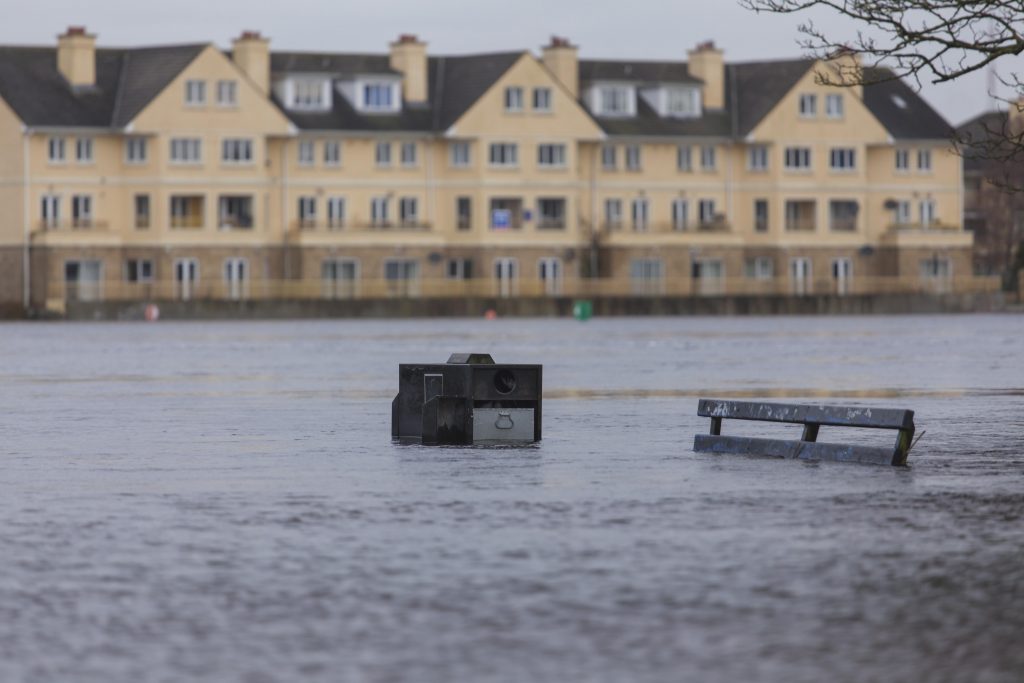Government launches Climate Change adaptation strategy
January 19th, 2018
The Irish government today announced its strategy as to how our island nation will adapt to the impact of climate change over the coming decades.
Launched by the Minister for Climate Action, Denis Naughten, TD, the National Adaptation Framework (NAF) also sets out the “diverse and wide-ranging impacts” of climate change for Ireland.
Temperatures in Ireland have risen by 0.8°C since 1900, while CO2 concentrations are higher than at any time over the last 400,000 years, the report states.
The latest Irish data also points to increased rainfall, a rise in sea surface temperature, and significant increases in acidity levels in deep offshore waters around Ireland.
According to the NAF, these changes will negatively impact our environment, economic development, water resources, agriculture and food security, as well as human health.
Future flooding events alone will cost the State in excess of one billion euro without concrete action to tackle the effects of climate change, the report states.
To tackle the issue, the document outlines the need for measures such as the identification of vulnerable infrastructure, the building of flood defense, more efficient use of water resources, and stricter planning regulation to block any new builds on areas at risk of flooding.
@DenisNaughten publishes Ireland’s first statutory National Adaptation Framework (NAF) this morning @merrionstreet @sligococo @CCMALocalGov pic.twitter.com/EEGDq8f8Uu
— Dept. Environment, Climate and Communications (@Dept_ECC) January 19, 2018
Unprecedented Challenge
Minister Naughten said that it will be an “unprecedented” challenge to meet the level of transformation required to prepare for the impacts of climate change.
“We are already all too familiar with the impacts that climate change is having on our economy and society – we have seen it with Storm Ophelia and more recently with Storm Eleanor,” he said.
“Our response to climate change is not just about dealing with future impacts – we must also be prepared for the here and now and the more immediate challenges that present.”
He added that together with the National Mitigation Plan (NMP), the launch of the NAF is “another vital step” in the transition to a climate resilient economy.

Irish Flooding in 2016 Photo: Niall Sargent
The NMP was met with widespread criticism from environmental organisations and opposition parties for a perceived lack of ambition or meaningful targets when it was launched last July.
Under the NAF, Government Departments will now be mandated to prepare their own adaptation plans in key areas such as agriculture, forestry, and transport.
Local Authorities will also be preparing Adaptation Strategies and the Framework provides a basis for local authorities and key sectors to assess their key climate risks and vulnerabilities while enabling climate resilience actions to be mainstreamed into all local, regional and national policymaking.
Working with Nature
While welcoming the publication of the Framework, the Green party took issue with several proposed measures in the document, such as dredging rivers and building higher flood walls.
The party’s Leader Eamon Ryan, TD said that the NAF must instead work with nature to tackle climate change, such as protecting our bogs which act as both carbon sinks and as a flood defence.
“We need to think long term and think big when it comes to adapting to climate change,” Mr Ryan said. “That should start with a land-use plan where we reconsider the nature of farming, forestry, biodiversity management, and flood management and protection.”
“All these areas are interconnected. By protecting our bogs, by changing how farming and forestry work, we can prevent flooding and restore life to rural Ireland,” he added.
VIDEO: New Climate Action Offices will be set up across the country to tackle effects of Climate Change here and now. Better planning, better flood protection. I launched the National Climate Adaptation Framework today at @sligococo @CCMALocalGov @Dept_CCAE #ClimateAction pic.twitter.com/gmbmEMrzNS
— Denis Naughten (@DenisNaughten) January 19, 2018
Local Climate Action Offices
Minister Naughten also announced the allocation of a €10m fund to set up four Local Authority Regional Climate Action Offices. The officers will be tasked with supporting the implementation of the Government’s national climate policy.
The offices will help local authorities play a “key role” in identifying climate vulnerabilities, as well as increasing our overall climate resilience, the Minister said.
He added: “The local authorities already provide a hugely important role as first responders to extreme weather-related events and their local knowledge and expertise will be essential in determining how successful we are going to be in addressing the challenges of climate change.”
The Chief Executive of Sligo County Council, Ciaran Hayes, welcomed the move which, he says, will lead to a “regional structure of expert teams” to help local governments meet the climate challenge.
“Local authorities are in the front line of responding to the effects of climate change, particularly in the aftermath of severe weather events,” said Mr Hayes, who sits on both the National Dialogue on Climate Action and the Climate Change Advisory Council’s Adaptation Committee.
“Today’s announcement enables the sector to further develop their competence to deal more comprehensively with climate change,” he added.
[x_author title=”About the Author”]







